Ghana/Enero de 2017/Fuente: News Ghana
RESUMEN: Una de las principales cacofonías mantrales del campo pre-electoral de Akufo-Addo dio nacimiento a «una política de educación gratuita para todos los niños ghaneses hasta la escuela secundaria». Como si la educación gratuita fuera una respuesta infalible a la miríada de problemas estructurales de Ghana. La educación gratuita forma parte de la gama de soluciones, por supuesto, pero ciertamente no es la única solución a la multitud de problemas del país. La calidad, la crítica y la educación científica, por otra parte, tienen la capacidad ilimitada de liberar a una mente indómita de la sofocante cerradura de la mentalidad malsana. La educación de calidad es el fundamento sobre el cual se construyen las sociedades y las civilizaciones iluminadas, y la adquisición de una persona de ella finalmente lleva al mundo por un camino de y hacia la grandeza. En otras palabras, uno de los rasgos distintivos de una educación de calidad es cuando constituye una persona en un universo acogedor de totalidad, más que en una isla rechazada de parroquialidad y crudeza indomables.
One of the major mantric cacophonies from the pre-election Akufo-Addo camp gave birth to “a policy of free education for all Ghanaian children up to Senior High School.”
As though free education is a foolproof riposte to Ghana’s myriad structural problems.
Free education is part of the range of solutions of course, but certainly not the only solution to the country’s myriad problems.
Quality, critical, and scientific education on the other hand has the unlimited capacity to free an untamed mind from the stifling clench of unwholesome mentation. Quality education is the foundation upon which enlightened societies and civilizations are built, and one person’s acquisition of it eventually carries the world along on a path of and to greatness.
In other words, one of the hallmarks of quality education is when it constitutes a person into a welcoming universe of wholeness rather than a rejected island of untamed parochialism and crudeness.
So free education spiced up with quality, critical and scientific didactics is the way to forward. We refer to such a system of education as “critical” and “scientific” because the pedagogical methodology involved in knowledge transmission or transference ignores chew-and-pour or learning-by-rote.
Tailoring this system of education to our immediate and long-term needs and industrialization expectations, but not necessarily copying others uncritically and irresponsibly, are two noble objectives we must always strive for.
Satisfying and responding to our immediate local needs does not necessarily imply absolute rejection of the rest of the world. It implies more than simply that. Neither does it take anything away from the idea of patriotic education, a knowledge-based system in which character-building experiences, civic and Afrocentric consciousness, and victorious consciousness inform the platform of self-knowledge.
We shall allow for the sake of argument, that moral or character education shapes the chaperoning compass of self-definition on the path to critical globalization, a trait palpably lacking in the national character.
Thus, the imperatives of globalization call for parallel adoption of cosmopolitan education and critical consciousness where we incorporate the diverse challenges, values, and expectations of human diversity into our proposed system of education.
Quality education has an important role to play in refining the rationale for globalization because it removes the veil of endarkenment from the human person, and puts that physics of humanity, trapped under the veil of endarkenment, directly in touch with its underlying intrinsic self in absolute loyalty to the extrinsic characterotology of its constitutive other, of otherness. There is therefore a large pool of creative possibilities of culminating moments in this crude enterprise of intellectual and cognitive refinement insofar as the complete wholeness of the human person is concerned.
We also are invariably talking about a system of education that is true to life, yet equally grounded in the progressive rationality of highly theoretical formulations with enormous implications for practical applications where improving the human condition is the primary target of humanistic education, as well as of putting together the scattered totality of the human person in a more productive mold of creative equilibrium with the rest of the human family. Thus, quality education makes the human person whole not only in abstraction but also in practice projections.
The only probable problem with this is that education in Ghana is so politicized to the extent that what should have constituted a strong positive correlation between theory and praxis becomes totally lost in the blinding mist of ideological and philosophical irrelevancies, with some uninformed politicians and ordinary Ghanaians even claiming that instructional overemphasis on theory in education and the Ghanaian classroom at the expense of praxis does not bode well for national development.
This viewpoint may not entirely or necessarily be correct after all given that these influential apologists also reject theory out of hand, yet theory for the most part comes across as the missing link between abstraction and reification on the one hand and praxis on the other, an important claim open to disputation.
We dare however say from our own unique perspective and experience that, praxis, after all, has existed in the immanent space of human experience because theory, its antecedent, may have given birth to it in the first place. This scenario sounds very much like a natural statement of fact establishing some degree of correlation between theory and praxis devoid of the element of reverse causality. It is not too clear for us if this correlation necessarily if perfectly fits the framalogy of mutual causality.
The foregoing statements notwithstanding, we are willing to concede that praxis may not always represent the natural progeny of theory in the immanent superstructure of human experience—in other words.
This is not another instantiation of rocket science, a concession largely borne out of common sense and human experience. We do not know if our readers are willing to share in our assumptions.
SOME CRITICAL PERSPECTIVES: WHAT IS QUALITY EDUCATION?
“Authentic thinking, thinking that is concerned about reality, does not take place in ivory tower isolation, but only in communication. If it is true that thought has meaning only when generated by action upon the world, the subordination of students to teachers becomes impossible (Paulo Freire).
In simple terms, we shall say quality education sharpens the intrinsic capacity for problem-solving skills; expands the range or depth of an analytical and critical faculty; provides meaningful avenues for confident articulation of ideas and cognitive refinement; encourages respect for differences; nurtures the interlocking profiles of active and global citizenship, community- and self-sustainability, and finally, brings all these together as part of the running engine of the creative logic of nation-building.
Quality education is not static but a democratic process that follows a rigorous lifelong-learning experiential trajectory characteristically defined by pragmatic, critical investments in mental and moral, or character, development—with a primary focus on harnessing immanent resources for effectively dealing with personal challenges for the overall benefit of society at large, as a matter of fact in patriotic defense of the public good. Suddenly we are reminded of what Paulo Freire had to say about lifelong learning:
“Teachers who do not take their own education seriously, who do study, who make little effort to keep abreast of events have no moral authority to coordinate the activities of the classroom.”
Quality education constitutes a progressive paradigm of political and education philosophy which revolves around the idea of inculcating students with a strong sense of social justice, of equity and fairness, of social and ethnic and gender inclusion, of environmental consciousness, of personal and public hygiene, of humanism, and of scientific and technological consciousness.
In the process it empowers women, meaning that it promotes the parity of men with women in the social-economic and political spheres, and the less privileged in society to take on the many challenges they encounter in society by contributing their quotas to their nation’s economic and political development and by taking on diverse roles as arbiters of community and national crisis.
Yes, and probably ironically also, for all intents and purposes, quality education is political in the truest sense of the word—political. All that we are saying is that, strictly speaking, education is politics. Sometimes, though, the overarching secularity, the moral corruption, and the extreme political partisanship of government unnecessarily intrude upon the delivery of quality public education.
This introduces unnecessary bureaucracy into quality education and renders knowledge transference and acquisition productively ineffective and unbeneficial in the larger scheme of things—all the more reason why government’s role must be limited in the delivery of quality education. This puts quality education in a situation far removed from what Dr. Kofi Kissi Dompere calls “cognitive imbecility.”
It is only a matter of time before our greedy politicians begin appreciating the notion of destroying the already-slumberous educational system since that serves a useful purpose for them—namely members of the ruling class, political and economic, in that the strategy numbs what should otherwise have been the critical faculties of the masses thereby rendering them paralytically gullible and subservient to the status quo.
The intended purpose and outcome of this unpatriotic act is that it tends to perpetuate and entrench the political continuity of the ruling class and its lordship over the masses. Our educated political elites make the likes of politicians such as Akua Donkoh look like they are overeducated, saints and angels. In other words what we have are our religious and educational institutions churning out unthinking robots of political thieves and criminals, hooligans, vandals, and vigilantes.
This was exactly what Bob Marley meant when on “Babylon System” he sang the following words:
“Building church and university…
“Deceiving the people continually…
“Me say them graduating thieves and murderers
“Look out now: they sucking the blood of the sufferers…
Education has therefore become a gracious means to an end, an end where the educated elite rapes and plunders the public purse with reckless abandon and where the same class of people entrenches the specter of institutional corruption as a collateral benefit to its privileged membership, to its cronies and families. Ghana thus finds itself caught in an uncompromising vicious circle of institutional corruption, moral decay, impunity, and ethical de-civilization for the most part.
Ironically, all the shameful attempts to justify or explain away Akufo-Addo’s plagiarized inaugural speech merely reflect this debilitating clinical symptomatology in education. It is rather posterity and its future that are being sold off on the cheap to the highest bidder on the altar of political wickedness.
And if we can all recall with vivid detail and clarity, then we can also say with authoritative firmness Akufo-Addo was indeed part of a prior cabinet in a corrupt administration that further forced our dying educational system under the sledgehammer or gavel of excessive politicization.
Fuente: https://www.newsghana.com.gh/the-focus-of-ghanas-education-is-to-of-quality-not-free/
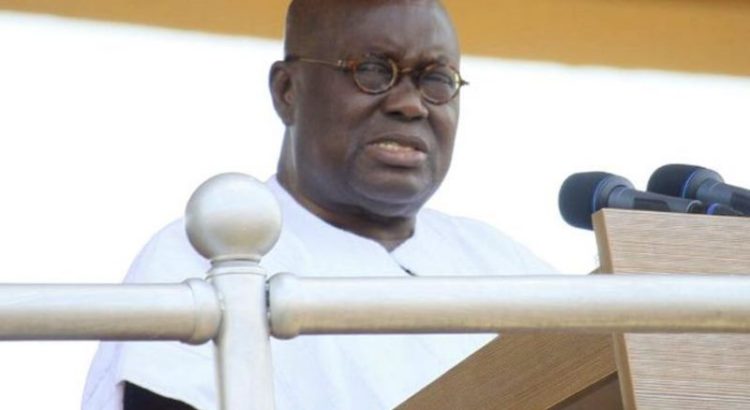
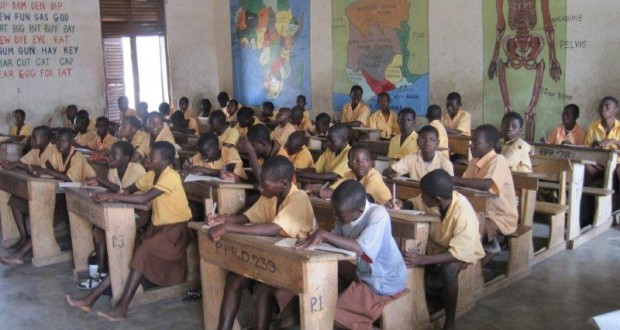
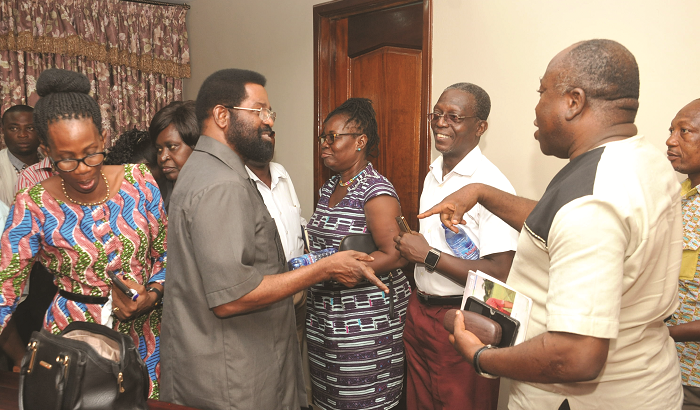
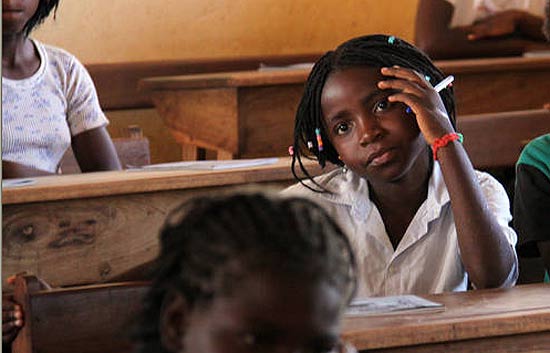
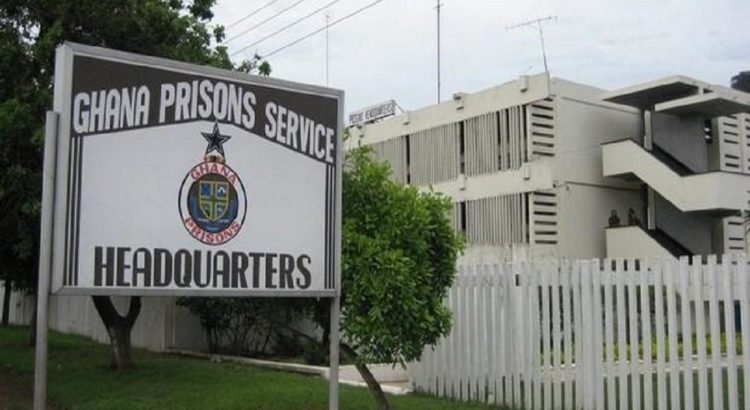
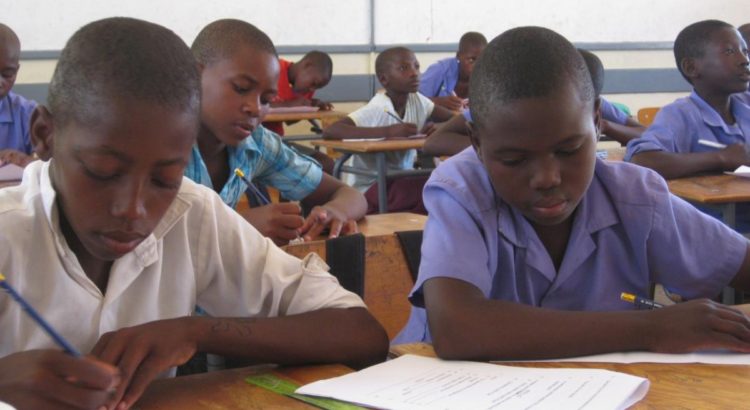
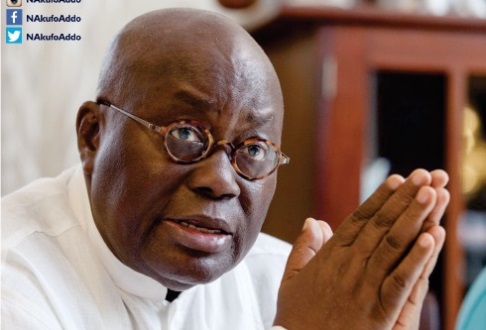






 Users Today : 8
Users Today : 8 Total Users : 35460669
Total Users : 35460669 Views Today : 16
Views Today : 16 Total views : 3419761
Total views : 3419761